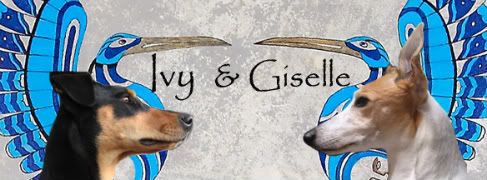Also, re: an "aggression gene". You know, I often ponder why dogs are aggressive or reactive because I have my own reactive dog (those lovely brown eyes you see in my siggie). I've come to the conclusion that while reactive/aggressive dogs may not conform to our definitions of "normal", we can never blame unnecessary aggression completely on genes alone and we can never use it as an excuse. Aggression/reactivity require management and behavioral modification, but failures of the dog are our own failures.
So while we're modifying our vocabulary (haha), can I ask what you mean by "attack"? I've seen far too many dog fights than I'd like to recount, but when a dog attacks, it intends to inflict damage/kill and it will not stop until something physically blocks it. So, when you say Checker's siblings all attack humans, what exactly do you mean? Do you mean they guard things like toys and food and will bite a human hand if it comes too close? Or do you mean something like: if the dog is sleeping and a human leans over it, the dog will snap? Like I said, in 99% of cases, there are triggers as to why a dog attacks. VERY rarely will you get a dog who is seriously mentally ill who attacks for no reason (even then, it's usually due to something like seizures or some other brain illness).
Edit: I'm sorry, I love this topic so I can go on about this forever
Alternatives to scolding: Manage the dogs' environment well. Be a strong, benevolent leader. Reactive/aggressive dogs NEED clear leadership and rules. Teach a rock solid recall. Whenever you see Checkers heading for the "red zone", recall her. The rest sort of just falls into place and you modify it as you go along. As you work with Checkers, you'll notice the difference. Just keep trucking along with it!








 Reply With Quote
Reply With Quote She's showing both fear and dominance at the same time! It's so confusing!
She's showing both fear and dominance at the same time! It's so confusing!

Bookmarks